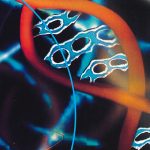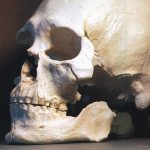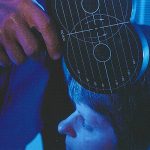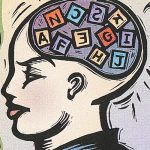Solutions
September 1, 2001
Turning off TB
UW Pathobiology Professor David Sherman announced that he was able to interrupt the function of a TB gene that allows the bacterium to go dormant.

Code control
Scientists may be solving the mystery of the human genome, but the debate is getting hotter over profit motives and the rights to the human blueprint.
June 1, 2001

What lies beneath
It terrified many, but the Nisqually earthquake boosted an effort to map the geology of Seattle, helping prepare the region for the "Big One."

Fighting depression
A UW study found that several brief office visits along with continuing telephone calls or even e-mail can help prevent a relapse of depression.
March 1, 2001

Bitter by nature
When it comes to phytonutrients in vegetables, the demands of good taste and good health may be wholly incompatible.

Space hazards
The dangers of space include bone loss, muscle atrophy and even cancer. The UW hopes to protect the next generation of astronauts and bring about earthly cures.
Brain in focus
A Center for Mind, Brain and Learning to conduct innovative research on early brain and behavioral development has been created at the University of Washington.
December 1, 2000

Predicting divorce
Researchers studying the state of American marriages now can predict not only which couples will divorce but also when they will divorce.

Why cells go bad
Once just a theory, Lawrence Loeb's mutation breakthrough could lead to new cancer treatments and even an unconventional way to stop AIDS.

Bones of contention
The saga of Kennewick Man is a volatile mix of race, religion, politics and science, and the UW is right in the middle of it.
September 1, 2000

Father of an island
Richard Evanson dedicated himself to revitalizing an island, turning it into an ecological paradise with the help of Fijian natives.
Heart attack study
Older women are less likely to receive early treatment following a heart attack than older men and are more likely to be assigned a do-not-resuscitate order during their hospital stay, UW researchers reported.
June 1, 2000

Magnets fight malaria
The power of magnets may defeat malaria, a disease that affects half a billion people a year, according to UW Bioengineering Professor Henry Lai.
March 1, 2000

Anti-bacterial armor
Buddy Ratner is leading a UW research team that may have discovered a way to prevent thousands of deaths from hospital-acquired infections each year.

Northern exposure
Students are working alongside UW faculty and graduate students for six weeks, building on a half-century of salmon research.

High anxiety
A UW professor and doctoral student conducted a pioneering study of people who fly frequently for business.
December 1, 1999

Magnetic relief
Depression's victims sometimes find that drugs and therapy can't help. Soon there may be a new solution — the power of magnetism.
Record funding
The University of Washington received a record $600 million in grant and contract awards for 1998-99.

Dyslexia research
UW researchers found that dyslexic children use nearly five times the brain area as normal children while performing a simple language task.
September 1, 1999

Stem cell breakthrough
A team of UW scientists has found a way to grow stem cells from mice in the laboratory.